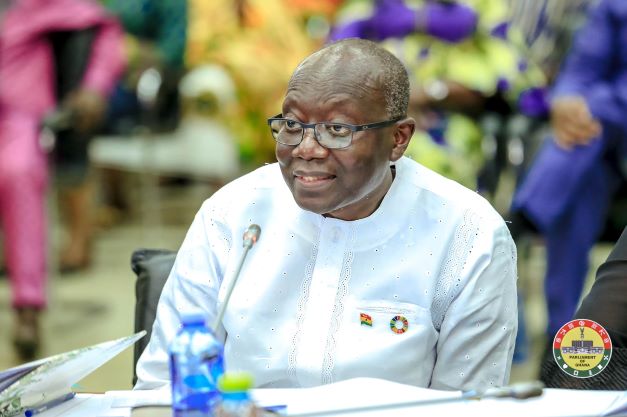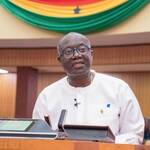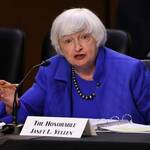Ghana has suspended debt service payments on certain categories of external debt pending an orderly restructuring of the affected obligations.
It includes Eurobonds, commercial loans and most bilateral debt.
The suspension is an interim emergency measure pending future agreements with all relevant creditors.
A statement issued by the Finance Ministry described the move as an additional emergency measures necessary to prevent a further deterioration in the economic, financial, and social situation in Ghana.
It revealed that financial resources, including the Bank of Ghana’s international reserves, are limited and need to be preserved at this critical juncture.
According to Ministry, the suspension will not include the payments of multilateral debt and new debts whether multilateral or otherwise contracted after December 19, 2022 or debts related to certain short term trade facilities.
The statement explained that government is evaluating certain specific debts related to projects with the highest socio-economic impact for Ghana which may have to be excluded.
Government committed to engaging in discussions with all of its external creditors to make Ghana’s debt sustainable through a fair, transparent and comprehensive debt restructuring exercise in line with international best practices.
The Ministry of Finance will hold an investor presentation at a date to be announced at a later stage, it added.
$3 billion IMF staff-level agreement
Ghana and the International Monetary Fund (IMF) have reached staff-level agreement on economic policies and reforms to be supported by a new three-year arrangement under the Extended Credit Facility (ECF) of about $3 billion.
Given the magnitude of the economic and social crisis that Ghana is confronted with, the GH¢137 billion domestic debt exchange programme launched earlier will not be enough to close the large financing gaps that Ghana faces over the coming years.
Exogenous factors
The COVID-19 pandemic, rising global food prices, rising crude oil and energy prices; and the Russia-Ukraine war adversely affected Ghana’s macroeconomy, with spillovers to the financial sector.
The combination of adverse external shocks had exposed Ghana to a surge in inflation, a large exchange rate depreciation and stress on the financing of the budget, which taken together have put public debt on an unsustainable path.
GH¢467.3bn public debt
These measures are expected to reduce the public debt which stood at GH¢467.3 billion (GH¢467,371.31 million) or the equivalent of $48.8 billion ($48,871.34 million) as at the end of September 2022.
Public is 75.9% to GDP
This represents approximately 75.9% of Gross Domestic Products (GDP) and the debt restructuring measures target to bring it down to 55% in the medium term.
The latest debt sustainability analysis had demonstrated that Ghana is faced with a significant financing gap over the coming years revealing that public debt is unsustainable.
Total public debt stock exceeds 100% of GDP
Total public debt stock, including that of State-Owned Enterprises and all, exceeds 100% of GDP.
GH¢52.6bn interest payment
Projected interest payment for 2023 is estimated at GH¢52.6 billion.
Debt servicing is now absorbing more than half of total government revenues and almost 70% of tax revenues.
50.3% inflation
The economy has suffered significantly since early 2022 with inflation rising from 13.9% in January to 50.3% in November.
Cedi’s fall and rebound
The rapid depreciation of the cedi which has lost over 54% of its value between January and November 2022 added some GH¢93 to the public and rising fuel prices had also taken a heavy toll but an appreciation of the local currency has recovered about 40% of the value lost to the slide.
Suspension to boost cedi rebound
The suspension of external debt payment is likely to give a further boost to the rebound of the cedi as reserves which would have been used to service debt in the near term will remain in BoG reserves.
GH¢137bn debt exchange programme
Earlier the government launched GH¢137 billion domestic debt exchange programme as part of a more comprehensive agenda to restore public debt sustainability.
Balance of payment support, new financing streams
When successful, the move will also open up financing streams and provide the needed balance of payment support from the International Monetary Fund (IMF).
4 legged approach
The debt restructuring which is expected to deal with high interest payments on the public debt is part of a four legged approach adopted by the government in 2023 budget aimed at alleviating the pressures on the national budget and restoring debt sustainability.
4 New Ghana bonds
Domestic debt operation involves an exchange for new Ghana bonds with a coupon that steps up to 10% as soon as 2025 (with a first interest payment in 2024) and longer average maturity.
Maturing dates for the new bonds
Existing domestic bonds as of December 1 2022 will be exchanged for a set of four new bonds maturing in 2027, 2029, 2032 and 2037.
Predetermined allocation ratios
Predetermined allocation ratios are 17% for the short bonds, 17% for the intermediate bond, 25% for the medium-term bond and 41% for the long-term bond.
Annual coupon rates
The annual coupon rates on all of these new bonds will be set at 0% in 2023, 5% in 2024 and 10% from 2025 until maturity. Coupon payments will be semi-annual.
Eligible holders, who deliver valid offers at or prior to the expiration date that are accepted by the country, will receive at the settlement date in exchange for their eligible bonds accepted, the same aggregate principal amount distributed across new bonds due dates.
Offers end on December 19
Offers which may only be submitted starting from December 5, 2022, and end at December 19, 2022 has been extended to December 30, 2022
Only registered holders eligible
The invitation is available only to registered holders of eligible bonds that are not individual investors or that are otherwise authorised by the Government of Ghana, in its sole discretion, to participate in the Invitation.
Government said eligible holders tendering their eligible bonds pursuant to the invitation will receive new bonds of the country on the terms and subject to the conditions described in the Exchange Memorandum.
All offers irrevocable
All offers to exchange eligible bonds made by eligible holders are irrevocable and by tendering their eligible bonds, eligible holders represented and warrant.
Such eligible bonds constitute all the eligible bonds owned by them and consent to the blocking by the Central Securities Depository of any attempt to transfer them prior to the settlement date or the termination of the invitation.




